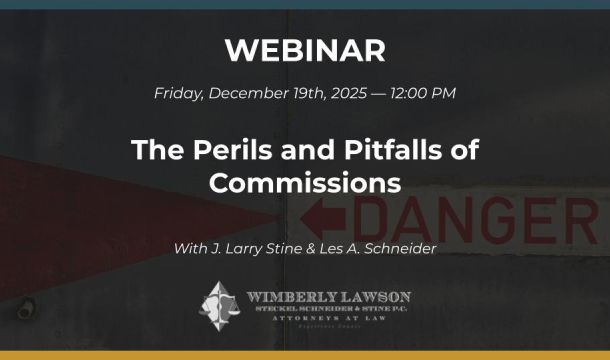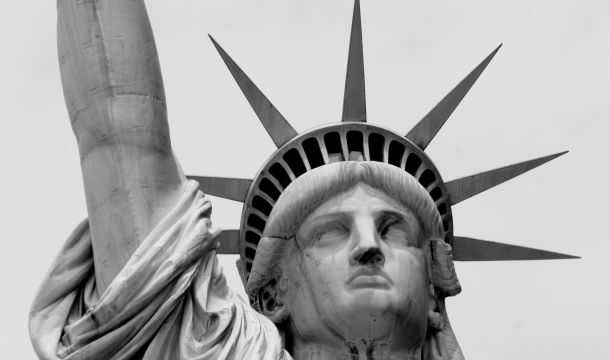Supplement – Child Labor
This is an update on the situation involving a child labor issue at a poultry plant in Alabama. There was a "raid" with a civil search warrant on May 1, 2024, by the Department of Labor (DOL). The DOL investigators claimed to have uncovered a number of minor children working in violation of the child labor laws and claimed the company was liable for these minor children under a strict liability test without regard to the knowledge of the employer. The DOL sued seeking the "hot goods" remedy of shutting down the 1,000-person facility for 30 days and seeking disgorgement of profits as part of the remedy in its application for a temporary restraining order and preliminary injunction. The customers of the facility were also contacted by the DOL both by telephone and by letter, urging them not to ship the products received from the facility.
Hearings were held before Judge Coogler, Northern District of Alabama, on May 14-15, 2024, and Wimberly & Lawson defended the case. There is a ruling from Judge Coogler dated July 2, 2024, totally rejecting all of the claims and ruling for the company. The ruling can be summarized as follows.
- It is clear that the DOL cannot establish a substantial likelihood of success because Plaintiff cannot establish that the company acted with the requisite scienter, rejecting Plaintiff's argument that the FLSA imposes strict liability for child labor violations.
- Plaintiff presented no evidence that Defendant knowingly employed any person under 18 years old.
- Defendant attempted to verify the information supplied through the E-Verify system, and rejecting this documentation could have exposed Defendant to liability for discrimination under the Immigration Reform and Control Act.
- To the extent Plaintiff argues that Defendant had reason to know that it was employing minors based on the workers' "appearance and mannerisms," the court disagreed, stating that the proposed test would unfairly affect those individuals' employment opportunities, essentially discriminating against those individuals on the basis of appearance.
- The judge significantly ruled that of the five alleged minors that the investigation discovered working at the Jasper plant during the execution of the search warrant, none of them were working in prohibited jobs as defined by the applicable regulations. The judge found that the DOL's interpretation of the regulations is contrary to their plain text.
- In addition to not establishing a substantial likelihood of success on the merits, Plaintiff did not establish that the threatened injury to commerce outweighed the harm that would be inflicted on Defendant, or that granting relief would not be adverse to the public interest. The evidence presented demonstrated that the requested 30-day stay of the hot goods injunction would have resulted in $63 million in economic damages to the company, and in addition, millions of pounds of chicken carcasses would have been placed in landfills, and the amount of economic and fiscal waste would simply have been astronomical. The situation would have even created a shortage of chicken on the market, leading to a drastic price increase in an already inflation-ridden economy.
- The requested "disgorgement" remedy that Plaintiff sought, would have inflicted unjustifiable harm. Taking profit without a full and fair hearing following discovery would have violated due process.
This ruling is about as strong as one ever sees. Larry Stine did a great job in defending the case. We believe this is a great victory for not only the company, but for the industry in general. The DOL has also been exposed in its inadequate investigations and draconian remedies in the absence of proof. DOL also misinterprets the applicable statutes, as indicated in the ruling. I thought you would want to know all of this information.
The company has also filed a counterclaim against DOL under the Federal Tort Claims Act for intentional interference of the relationship between the company and its customers. It alleges that DOL wrongfully and intentionally telephoned customers and wrongfully and intentionally sent letters to customers asserting that the company violated child labor laws before completing an investigation or assessing penalties and before giving the company the opportunity to have a hearing on the alleged violation, and before obtaining an injunction restraining violation of child labor laws. All the actions were particularly wrongful since the judge ruled that the company had not violated the law in any way.
This article is part of our August 2024 Newsletter.
View newsletter online
Download the newsletter as a PDF
Related Content
Get Email Updates

Department of Homeland Security (DHS) is Terminating Family Reunification Parole (FRP) Processes

DHS is Terminating Temporary Protected Status for Ethiopia

Issues Regarding Employee Access to Their Personnel Files

Issues of Employer Access to Employees’ Personal Devices Such as Cell Phones, Etc

Settlement Agreement Wording Can Determine Tax Treatment



